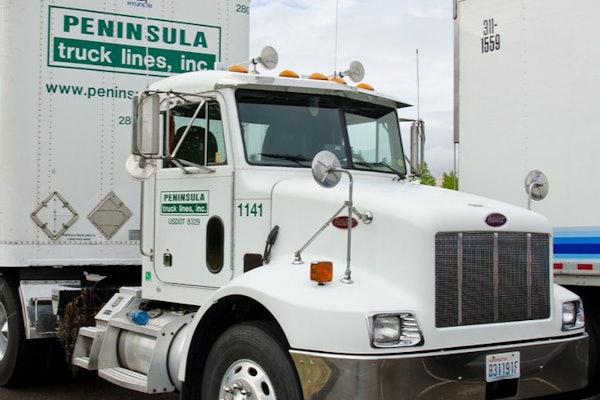The American Trucking Associations has filed a motion to intervene on behalf of the Federal Motor Carrier Safety Administration in Public Citizen’s latest challenge to FMCSA’s hours-of-service rule.
Public Citizen filed suit Feb. 27 in the U.S. Court of Appeals for the District of Columbia Circuit, demanding changes in the new rule. Joined in the suit were Citizens for Reliable and Safe Highways, Parents Against Tired Truckers and Advocates for Highway and Auto Safety, and later the International Brotherhood of Teamsters.
The contested FMCSA rule allows truckers to drive 11 consecutive hours before taking a mandatory 10-hour off-duty break. Before 2004, drivers were allowed to drive 10 hours, but the agency upped the total number of driving hours while increasing the required rest period. Also disputed by the safety groups: the lack of a mandate for electronic onboard recorders and an alleged lack of consideration for drivers’ health.
ATA says it will show that the rule advances public safety while meeting the operational needs of the trucking industry. “The final rule will directly impact the efficiency, productivity and safety of the national trucking industry,” wrote Robert Digges Jr., ATA deputy general counsel.
Public Citizen, CRASH and PATT previously have challenged the HOS law. The groups won when the court ruled that FMCSA failed to take driver health into consideration when drafting the rule in 2003. But actions by Congress and the agency mitigated the effects of that court ruling.
The agency reissued the rule last summer, modifying regulations concerning sleeper berths but leaving on-duty driving provisions unchanged. Those sleeper-berth changes, on the other hand, spawned their own court challenge by the Owner-Operator Independent Drivers Association.
OOIDA also is challenging the 14-hour on-duty provision, which limits work to 14 hours once on duty, unless the trucker takes a long enough break. Filed earlier this year, that challenge is gaining momentum. The Truckload Carriers Association, the Ohio Trucking Association and the California Trucking Association have filed supporting documents to help the challenge; so has the Teamsters union.







